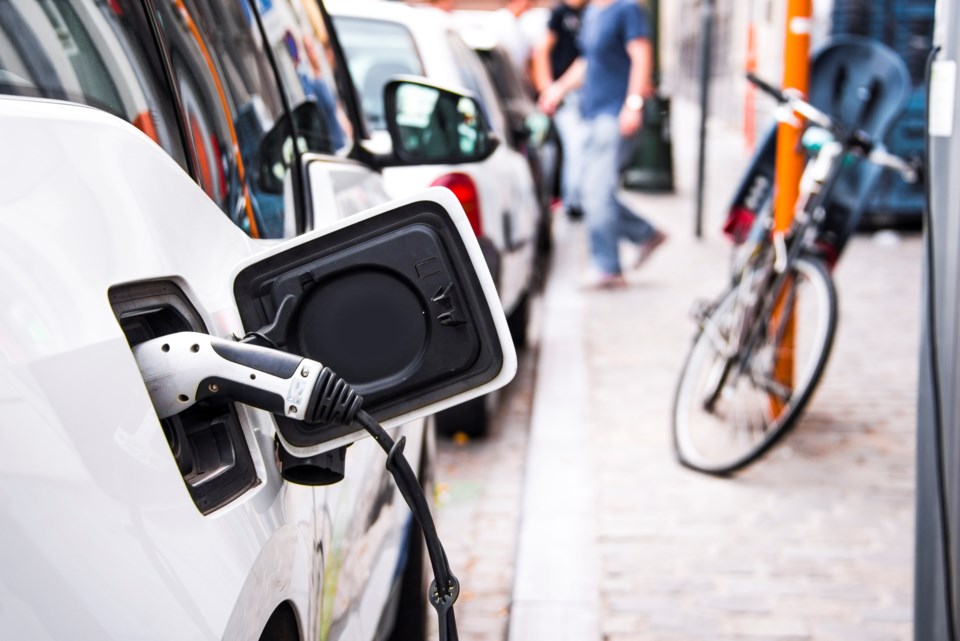BC Hydro is warning British Columbians of an impending “EV bottleneck” after hundreds of thousands of drivers who put off buying an electric vehicle over the pandemic look to pick up a new car.
In a recently released report titled “Leading the charge: Why demand for EVs will increase in a post-pandemic world,” a BC Hydro survey found roughly two-thirds of British Columbians are considering buying an EV over the next several years; meanwhile, a majority are looking to purchase one in the next year or two.
“Despite a global pandemic that kept most British Columbians home more than ever before, electric vehicle sales in B.C. accounted for almost 10% of car sales in 2020 — the highest rate per capita in North America,” notes the report.
Most potential EV owners say told BC Hydro they want to make the switch to save money on gas and protect the environment.
The electric utility predicts post-pandemic demand for certain models is likely to lead to long waitlists. Meanwhile, a microchip and lithium battery shortage is also expected to squeeze global supply.
SOLUTIONS TO BEAT THE 'EV BOTTLENECK'
Still looking to make the switch to electric? BC Hydro recommends the following solutions to avoid the bottleneck:
Get on multiple waitlists
With popular models in high demand, the utility recommends shortlisting several models — then get on several waitlists and get ready to be flexible.
Buy second-hand
Electric is electric, and buying second-hand will still save you money on gas and help the planet.
Be persistent. EVs pay off
Remember, switching from a gas to electric will:
- Save you 80% in fuel costs over a year and roughly $100 in maintenance costs.
- Give you access to $3,000 in provincial rebates and up to $5,000 in federal rebates on the purchase of a new vehicle.
- Lower your carbon footprint.
AN ELECTRIC TIPPING POINT
According to leading UBC energy economics professor Werner Antweiler, moving from a gas-powered car to an electric vehicle would cut your fuel bill to a fifth of the cost per kilometre.
For several years, government subsidies have propped up the added cost of electric vehicles as start-ups like Tesla got off the ground.
That is changing.
As technology has progressed, so too have the business calculations of major car manufacturers. In a sign of the coming electric tide, in January, General Motors committed to going fully electric by 2035.
In purely market terms, the tipping point when electric vehicles reach cost parity with gas-powered cars comes when batteries — by far the most expensive part of an electric vehicle — hit $100 per kilowatt-hour of energy (think the amount of energy a 100-watt light bulb would rack up over 10 hours).
Antweiler sees such parity coming over the next couple of years, which lines up with an annual battery price survey conducted in December by Bloomberg New Energy Finance, a group that provides insight and data on the transformation of the energy sector. The survey found that last year, battery prices fell by 13% to $137/kWh, down from $1,100 per kWh in 2010.
“Come battery parity, we won’t need any subsidies,” says Antweiler.
“The moment electric cars are cheaper than gasoline cars, it’s a no brainer. We’re getting to that point.”
Metro Vancouver, like many urban centres, still faces some big market failures to make electric vehicles both equitable and practical. Chief among those include expanding a wider network of charging stations, whether on the side of highways or in the underground parking lots of multi-unit buildings.
The BC Hydro report surveyed 800 British Columbians from May 17-19, 2021. It carries a margin of error of +/- 3.5%, or 19 times out of 20.


